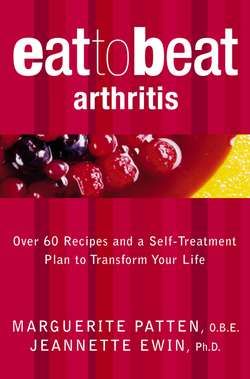Читать книгу Arthritis: Over 60 Recipes and a Self-Treatment Plan to Transform Your Life - Marguerite O.B.E. Patten - Страница 12
Get adequate sleep
ОглавлениеInsomnia affects the ability to concentrate and increases the awareness of pain and discomfort. If you have trouble sleeping, you are not alone. According to the Mayo Clinic in Rochester, Minnesota, more than 100 million people in the United States do not get a good night’s sleep on a regular basis. Tired people have slower reaction times, are less productive and are less likely to interact with others in a positive manner. Like everyone else, arthritis sufferers should do all they can to maximize their chances of sleeping for eight hours a night. Here are some tips on what you can do to help you deal with this insidious problem.
First, however, what is insomnia? According to the Mayo Clinic, in the United States, these are some signs to watch out for:
It takes longer than 30 minutes to fall asleep
You wake several times during the night
You wake up feeling muddled and tired
You fall asleep during meetings and daytime events
You are forgetful.
Dr Peter Hauri, Director of the Mayo Clinic Insomnia Program, suggests that answers to the following questions may help determine why you have sleep problems:
Do you feel anxious when you are getting ready for bed?
Do you argue with your spouse or partner in bed?
Do you worry about the next day’s tasks when you are trying to fall asleep?
Do you keep checking the time on a bedside clock?
Do you sleep better on holiday, or at a friend’s house, than when you are in your own bed at home?
Do you try to force yourself to go to sleep?
If you answered ‘yes’ to any of these questions you should take action.
Dr John W. Shepard Jr, M.D., Medical Director of the Mayo Clinic Sleep Disorders Center, has offered the following tips on how to get the full eight hours of sleep we all need each night. Remember, however, that what works for one person may not work for another. Try one or two of the following suggestions at a time until you find the combination that is right for you.
Avoid caffeine and nicotine. Both are addictive stimulants that can interfere with sleep. (Remember that on the Eat to Beat Arthritis Diet, neither caffeine nor cigarettes are permitted.)
Exercise, preferably in the afternoon.
Watch what you eat and drink. Fatty and spicy foods may cause heartburn that disturbs sleep.
Avoid drinking alcohol before going to bed; it may cause you to snore or get up during the night. (You should be avoiding it anyway while on the Eat to Beat Arthritis Diet.)
If you must have a midnight snack, eat foods rich in the amino acid L-tryptophan, which triggers the release of serotonin in the brain. Good snacks include a glass of milk (warm or cold, as you prefer) or a tuna or turkey sandwich.
Make sure the room is cool before going to bed, but have enough bedding to keep your body warm. Warm hands and feet encourage sleep.
Avoid naps. Save your sleep for night-time.
Enjoy stillness. Leave the radio and television off. If external noises disturb you use earplugs.
Use your bed only for sleeping and sex. Watch television somewhere else.
Set a sleep schedule. Try to go to bed and get up at the same time each day. Remember that a lazy Sunday morning in bed after a night out can mean a restless night ahead.
Do not fret if you cannot go to sleep immediately. After a time, get up and do something else, like reading a good book. Then try again.
